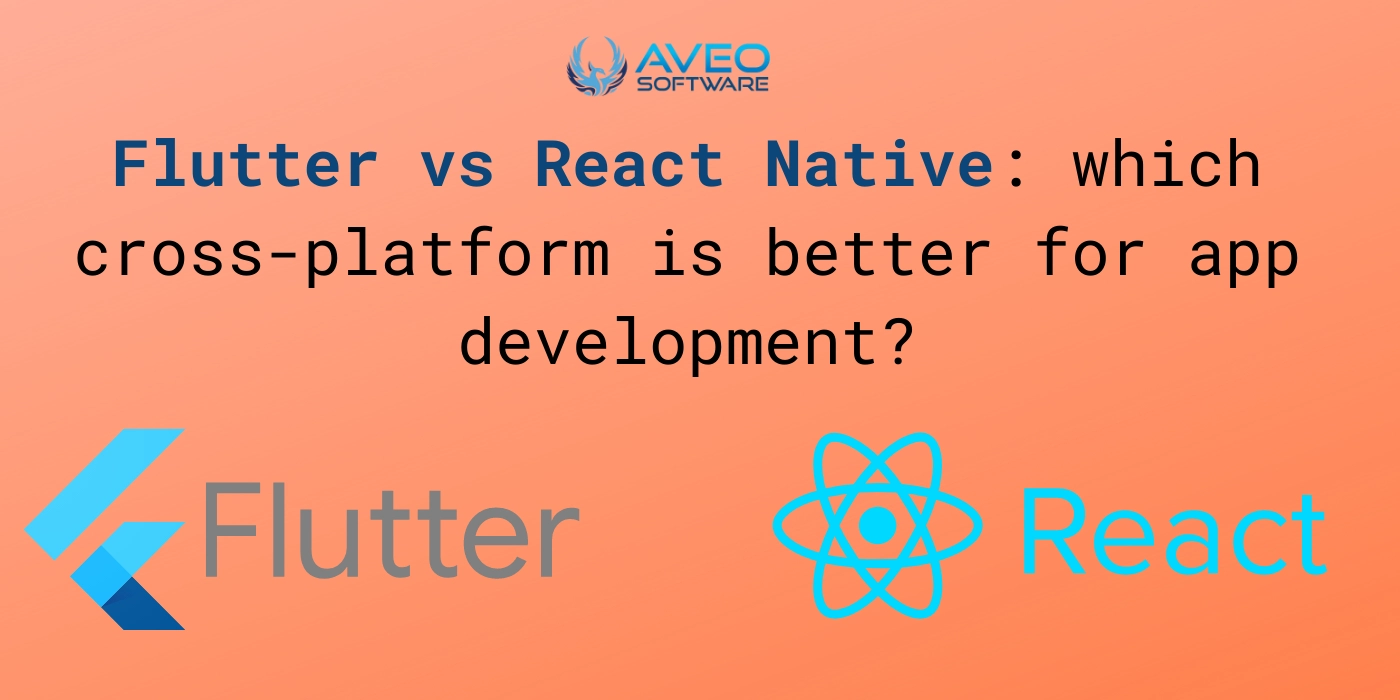
JC
Flutter vs React Native: which cross-platform is better for app development?
6 Apr 2023 | Mobile App Development

JC
6 Apr 2023 | Mobile App Development

Are you hoping to develop an app that will run on multiple platforms, but you’re wondering which cross-platform app development technology is better: Flutter or React Native?
In this article, we’re going to compare the two titans in the software development industry, what they are, their pros and Cons, to help you decide which ones are best for your project.
Cross-platform app development solutions are gathering much attention, with Flutter and React Native being two of the biggest players. A good app development company will build an app for your business or startup, using an approach that is best for your idea — be it Flutter or React Native. Without further ado, let’s put these two under the microscope so you can decide which one’s better.
Flutter is a free and open-source UI toolkit created by Google for app development. It is a software development kit (SDK), meaning it contains every tool you need for app development — libraries, framework, widgets, API, documentation, and more. Flutter offers developers an easy way to create apps that are visually consistent across multiple platforms — Android, iOS, Mac, Windows, Web, or Linux. It is powered by Dart, a programming language that’s relatively new, but easy to learn, especially for developers that are familiar with JavaScript and C#.
Flutter offers you a fast app development experience. The “Hot Reload” function makes it possible for developers to make changes to the code base, and see the change reflected on the application in a blink of an eye. Hence, this improves productivity, efficiency, and ultimately increases the app development speed.
Using Flutter, developers can create mobile (Android and iOS), web, and computer (Mac, Windows, Linux) applications with a single codebase. And because Flutter has its widget, and designs, whichever app you create will look the same on any of those platforms, but you can differentiate them if you want.
Another interesting thing is that Flutter apps operate smoothly and fast — nothing like hanging or cutting while scrolling. This is because of the Flutter skia library which causes the UI to be redrawn whenever a view changes.
Flutter has its own widgets which are rendered and managed by its graphic engine. As a result, Flutter apps have exceptional user-friendly UI, a crucial advantage it has over React Native. With Flutter, developers can create their widgets, or simply combine already existing ones to create a custom widget.
If you want to build an MVP app — maybe you want to show your idea to potential investors, or for some other reason you want it delivered with in a short time frame, Flutter is the best choice.
1. Flutter is a relatively new technology. So one advantage ReactNative has over it is that it’s more established, and has a more experienced developer community. Plus, Flutter’s programming language (Dart) is not as widely used as JavaScript.
2. Although Flutter is open-source, the huge success it has recorded with in such a short time is largely due to Google’s support. If Google decides to pull its support, it may not exist again.
3. Applications built on Flutter are usually bigger than native ones (although their development team is working to reduce the app size).
React Native is a mobile application technology that’s powered by JavaScript. It is a cross-platform app solution that allows you to create apps for Android and iOS using a single codebase. It is owned by Facebook, and just like Flutter, it is also an open-source kit. React Native uses “components” that are analogous to widgets in Flutter.
This is essentially the same feature as the “Hot Reload” in Flutter — allows developers to make changes to the code and see the impact of the changes immediately.
This is also the same thing as Flutter. Being a cross-platform app development technology, developers can be able to create an app that works on both Android and iOS, using a single codebase.
React Native is powered by JavaScript, which is a well know programming language amongst developers. On the other hand, Dart is relatively new, and not so well-known.
React Native was launched in 2015. Since then, so many changes have occurred. Together with the React Native community, Facebook has had ample time to stabilize the API, as well as fixing other issues.
React Native boasts a massive developer community. Not only that, there are many tutorials, libraries, and UI frameworks that can make it easy for developers to learn the technology.
1. Just like any other cross-platform, the UI experience and the performance is never the same as a native app.
2. Just like Flutter, apps that are developed with React Native tend to be bigger than native apps. However, this applies to the Android counterpart, as iOS apps don’t have this problem. The development team is currently working to reduce the size.
3. Apps built on React Native tend to have fragile UI which can break after an operating system update (although this is very rare).
At the end of the day, deciding which one’s better between Flutter and React Native boils down to personal preference. A developer with more knowledge and expertise in JavaScript will most certainly go for React Native. While on the other end, a developer that fancies an object-oriented paradigm, wouldn’t think twice about picking Flutter. The two are great cross-platforms for app development, but Flutter with its growth pace is on course to out run React Native. Although it’s a relatively new technology, developers are already pointing to flutter as the future of mobile app development.